Dutch food culture surprises many newcomers. When the Dutch “put lettuce and tomato on a sandwich, they think it’s a party,” quips Dorina Pojani.
Pojani’s jab gets to the point—food in the Netherlands is functional and simple. Some say it lacks poetry, others find it a welcome change, but the abundance of sandwiches, coffee and Cup-a-Soup makes for hours of conversation among local foreigners.
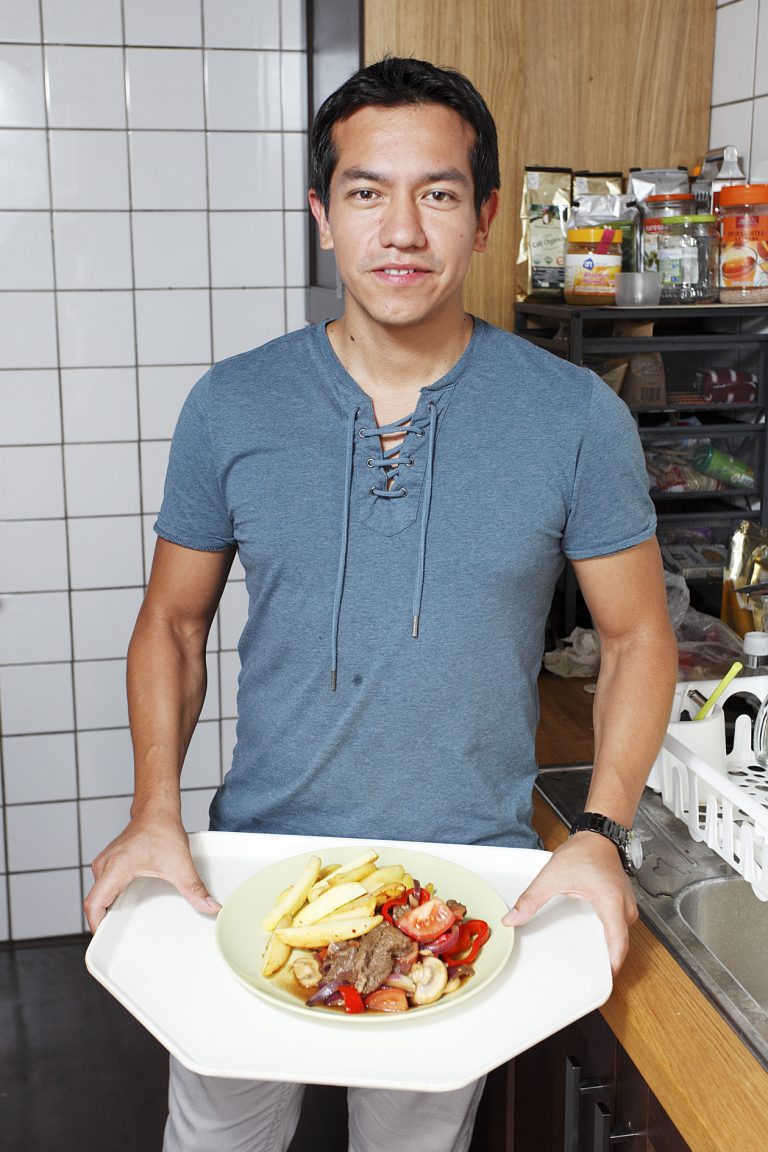
But Pojani, an Albanian postdoctoral urbanism researcher who joined TU Delft after living in the United States, targets her harshest criticism at Sodexo, the university’s official caterer. “Sodexo takes food quality to a new low,” she says. María Gélvez Rueda, a Colombian master’s student in sustainable energy, agrees. Initially confused by the Netherlands’ cold lunches and large dinners, “I’m in the full Dutch mode now,” she says, lunching on sandwiches and saving her biggest meal for evening. One sticking point remains, though, “I don’t really like the food at Sodexo. But nobody does.”
Sodexo arrived at TU Delft on July 1 2007. The company is the world’s 18th largest employer, with ‘nearly 428,000 employees in eighty countries across the globe,’ according its website. TU Delft isn’t Sodexo’s only venture in the Netherlands; the company runs 1,300 locations in the Netherlands alone, according Jos Schulte, Account Manager Education, who oversees Sodexo food services at TU Delft.
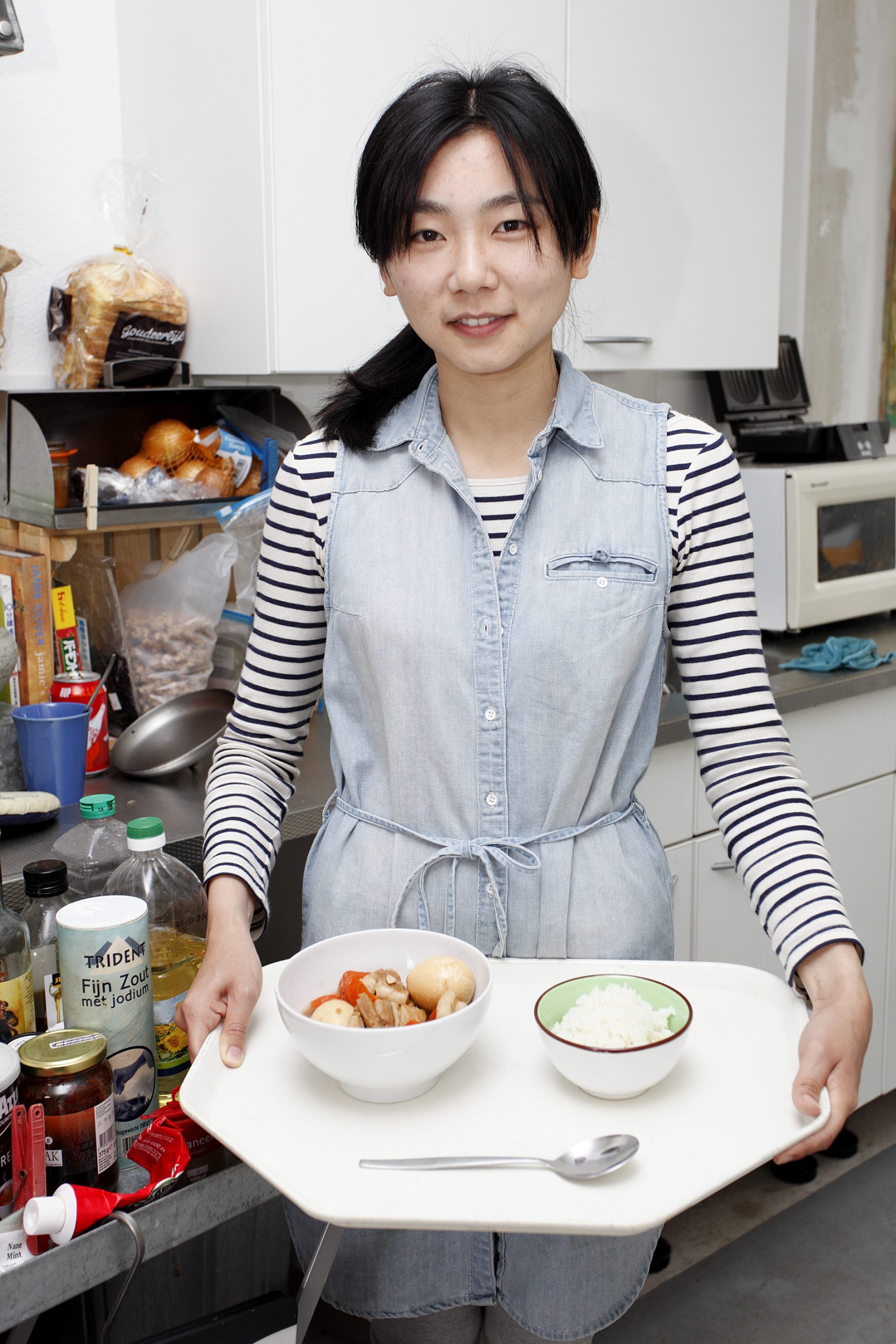
Stuck with Sodexo
According to their ten year contract, only Sodexo can provide the food in the university’s canteens and cafés, says Jelle Bos, Interim Facility Management & Real Estate (FMRE) Manager. TU Delft would not disclose how much it pays Sodexo for this service.
Sodexo is also the preferred, but not mandated, provider of food ordered for meetings and other TU Delft events (known as “banquet”), but in those cases, students and staff are able to decide for themselves from which restaurant they’ll order. And they do. “We see that a lot of orders are made outside of Sodexo,” says Bos, who estimates that roughly 60% of the university’s banqueting comes from non-Sodexo sources.
Despite this bit of flexibility, Bos describes the contract as very old-fashioned. It focused on basic needs, canteen pricing guidelines and anticipating the changing needs of the customer. Bos worries that on the last point, Sodexo is falling short. “I hear a lot of complaints,” he says. “I don’t think the variety is very good.” According to Schulte, Sodexo realises its customers are less than satisfied, thanks to monthly surveys and restaurant managers’ daily contact with diners, all information he wants to use to increase customer satisfaction.
The first step toward that goal was this summer’s makeover of Sodexo’s Aula canteen, including cosmetic changes and a new menu. Sodexo and the university hope the canteen’s new identity will make it an environment where students feel welcome all day “and maybe all night, like the library,” adds Bos. Moreover, Sodexo plans to work more with the university’s Health Coach Programme to create healthier selections, and might roll out more international options on a weekly or monthly basis. Daily international offerings are not yet planned, but Schulte is open to the idea. He says he hopes internationals at TU Delft will approach him with suggestions.
At the moment, though, internationals feel largely unheard. During the 2013-2014 academic year, for example, the Architecture faculty pulled together a focus group to brainstorm about the food in its Sodexo-run canteen. The meeting was in Dutch, which Pojani, who was there, suspects kept other foreigners from participating. “The discussion was all wrong,” she says. It centred on recycling and organic offerings, rather than addressing what she sees as the real issue, “proper food.”
This effort reveals TU Delft’s and Sodexo’s failure to connect with their international population, and illustrates what Bos notices. “I don’t think I can say the international students complain more than the Dutch,” he says, “the complaints are different.” While internationals mainly crave better, more varied food, the Dutch push for organic food and recycling, the exact issues brought up during the Architecture meeting.
It is this discontent that prompted bachelor’s students Malcolm Brown and Said Idoum to launch the Facebook group “Sodexo: We’ve had Enough.” By its third day, the group had 1,000 members, and has since grown to 2,167 members, but is just a place to vent, according to Pojani. According Schulte, members of the Facebook page have not contacted him.
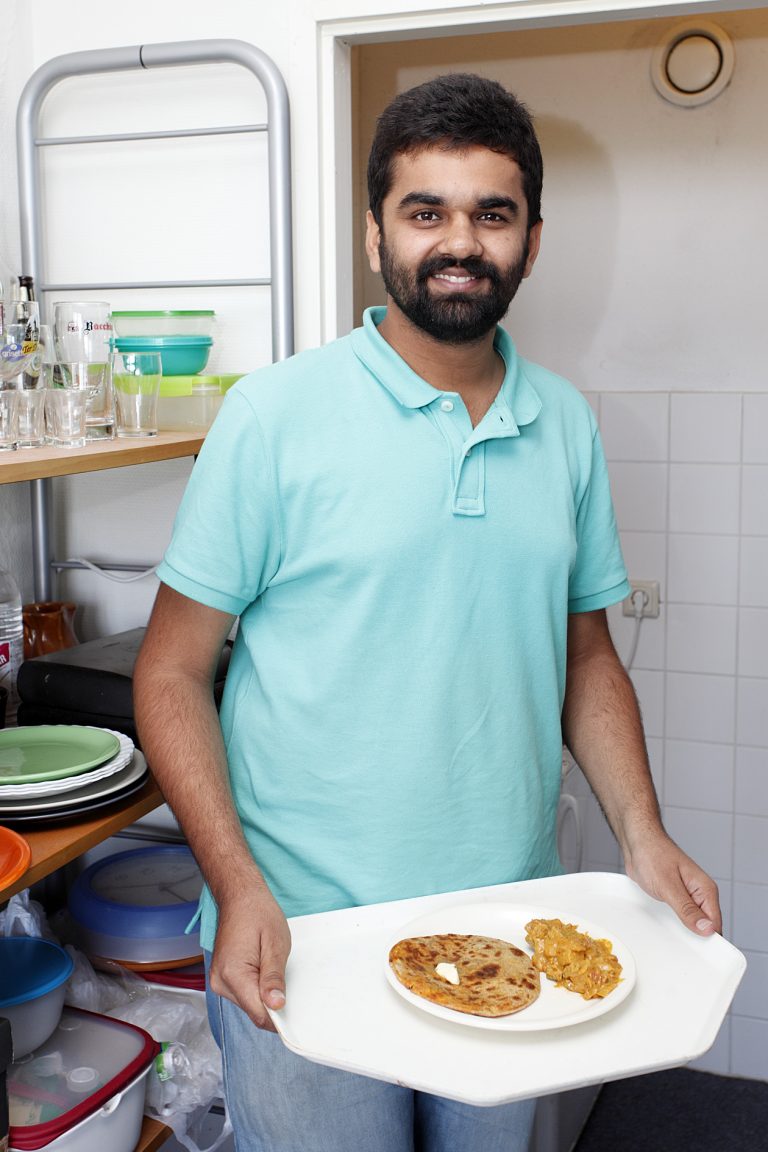
Clueless about customers
The Facebook page reflects entrenched anti-Sodexo feelings on campus, expressed passionately by many internationals. “I don’t think Sodexo does international food very well,” says Julia Kasmire, a PhD candidate in the Technology, Policy and Management faculty from the United States. “All the international students I know, bar one, bring their own lunch,” she adds. Punit Gandhi, a master’s student in sustainable energy technology from India, says he cooks in the morning and takes the meals with him to campus.
Vegetarians say Sodexo fails to make the grade as well. According to Kasmire, “finding meatless options without massive quantities of cheese is nearly impossible” while Gandhi complains Sodexo’s vegetarian dishes don’t vary much. More specialised dietary needs and religious food laws are ignored altogether, an issue familiar to K.M. Nazmul Islam, a master’s student in industrial ecology from Bangladesh. A Muslim, he only eats halal food. His only on-campus dining option is the Döner Company.
“Even sandwiches, a Dutch staple, are disappointing single cheese, single ham, single bread offerings,” says Ariel Lee, a master’s student in industrial ecology from Taiwan. Kasmire says sandwiches bursting with “decorative” lettuce on the outside are half-empty on the inside. And those who want to eat on campus sometimes can’t, because canteen hours are limited, forcing students into the centre of Delft or back home at odd hours, foraging for food.
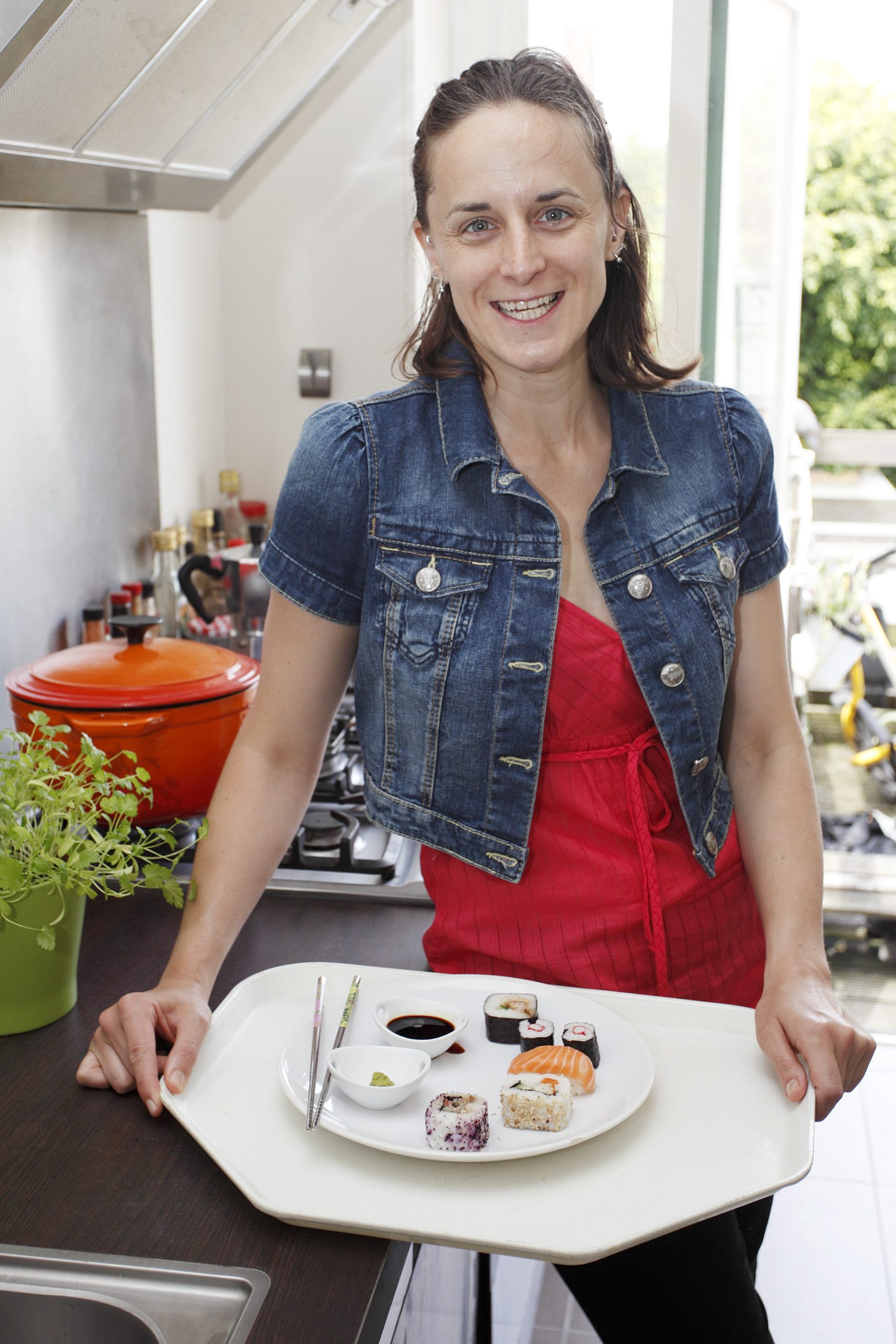
Fringe benefits
More variety and better value wouldn’t hurt, either, say internationals. Ricardo Reinoso, a Civil Engineering PhD candidate from Peru, suggests Sodexo “…try to make food from other countries with a nice food culture.”
But not everyone is disappointed, or even surprised, by the food at TU Delft. When Talya ten Brink first heard gripes about Sodexo’s food, she thought, “Why are people complaining?” Ten Brink, a master’s student in Landscape Architecture, is American, and says, “The Dutch have a better food culture than what you have in the U.S.”
Others agree that life here has certain dietary benefits. “In the Netherlands, I feel that I am healthier,” says Lee, who lost weight after moving here. Many see another silver lining. “It gave me the opportunity to develop my cooking skills…to make something healthy and delicious,” Jaffe explains. By last autumn, Gandhi’s culinary expertise was so good that he won a “Best International Cook in Delft” award.
Interestingly, Schulte thinks many at TU Delft are unhappy because they feel forced to choose Sodexo. Bos agrees. “It will be a big win if people can choose” from different on-campus food suppliers, he says. Because the current contract stipulates Sodexo as the school’s sole caterer, creating change before the contract ends in 2017 isn’t easy. European regulations complicate matters – bringing in new vendors a laborious, time-consuming process that can take months, Bos says.
Nonetheless, with cooperation from Sodexo, a handful of on-campus food alternatives are thriving. The library’s Coffee Star and the Döner Company earn praise, and this summer “rolling kitchens,” or small food trucks, drove onto campus to sell coffee, tostis or chicken saté (chicken with Indonesian peanut sauce) for the first time. Most notably, the university owns and operates the café at Sport and Culture, which also offers banqueting services.
The Sports Café opened in 2006, says Jeroen Boerrigter, Managing Caterer at Sports and Culture, and has evolved into a happening spot serving barbecue, organic burgers, handmade pizzas and some Dutch dishes. Specials are tweeted daily, and the eatery’s on-campus buzz is positive. “I think it’s really nice,” says Gélvez Rueda, “it’s also kind of expensive, but that’s okay.” Boerrigter concedes that the prices aren’t rock bottom, but adds that he tries to offer the freshest and most authentic food possible within budget. “We cannot do everything fresh,” he says, but “we [are] always seeking the balance.” Boerrigter says another focus is international students, a group he thinks Sodexo has yet to serve adequately.
But he is quick to point out that a university-run restaurant works differently than a multinational catering corporation. “Sodexo is a whole different company with a whole different structure,” he says. “The Sports Café and its banqueting services are not entirely profit-oriented, so we can do things within our mission and vision,” he says. “The revenues we make eventually come back to the students, and keep the finances within the university.”
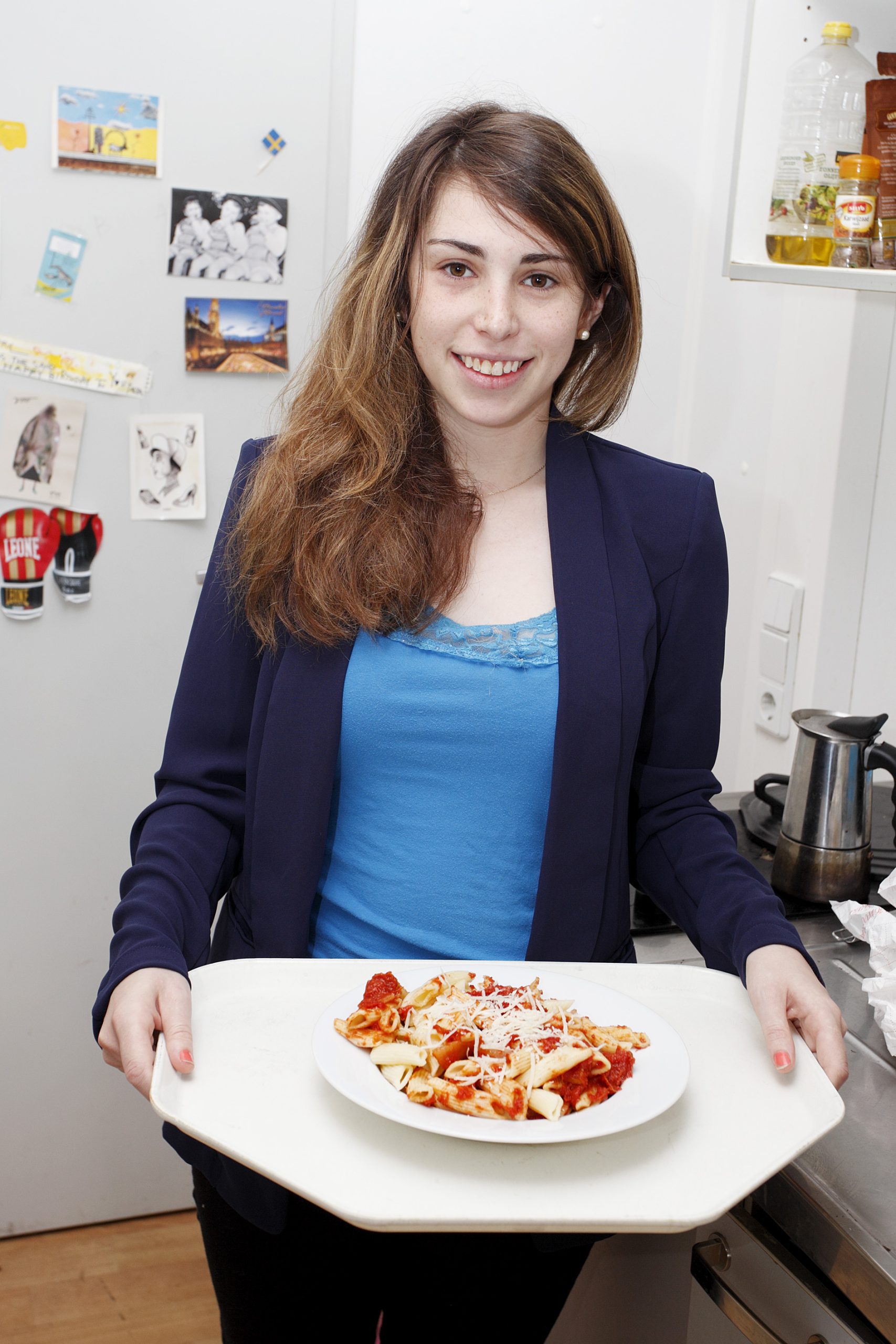
Looking ahead
TU Delft is considering its own culinary future. Students, professors, FMRE Sodexo and others all hold a stake in decisions and potential changes. Though the Aula redesign was a start, the university community would welcome more substantive change. To that end, FMRE has initiated a comprehensive hospitality plan to address the issues at play, with the goal of offering food and dining experiences that students and employees enjoy. “I’m hoping to have a new situation by fall 2015,” Bos says.
Moving forward, he looks to Erasmus University Rotterdam for inspiration. Erasmus has a food court with several different vendors and a central, inviting seating area with wifi. If this concept comes to TU Delft, the international community, for one, will be happy to have a gathering spot defined by a multitude of food offerings. A small on-campus grocery store is scheduled to open in late 2015, according to Bert Vogel, Delft council representative from the student-run STIP party.
According to Boerrigter, noticeable, lasting change to food at TU Delft could really be on the way. “There is a paradigm shift at the moment at FMRE and TU Delft,” he says, and before long, food on campus “is going to look completely different.”


Comments are closed.